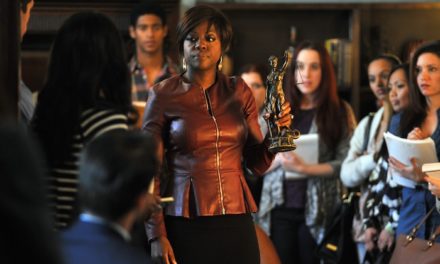It is all too appropriate that the day before Super Bowl LII, Theater Emory recited a story about the Patriot family and their dynasty. Indeed, just like the football team from Massachusetts, this Patriot clan was unrelenting, ruthless and fierce. They wanted to defeat their opponents and they crafted an elaborate game plan to do so. Rather than playing football, however, these Patriots were a family of politicians.
“Kings Are Killed” is the first in Theater Emory’s “Brave New Works,” a series of script readings of new plays by accomplished playwrights, held in the Schwartz Center for Performing Art’s Theater Lab Feb. 3. Jireh Breon Holder, the current playwriting fellow at Emory, penned the play, and professional director Justin Anderson directed the staged reading.
The reading featured nine performers (some professional actors, some students and some faculty) who each portrayed a different character. While the play featured numerous subplots, it mainly followed the life of Alonzo Snowden (professional actor Marquis Smith), a young, eager Yale University (Conn.) graduate who arrives for an internship at the summer house of esteemed Sen. Robert Patriot (professional actor Robin Bloodworth). After Alonzo interacts with members of the household, including Robert’s wife Toni (professional actor Olivia D. Dawson), head chef Eldridge (Emory Artist Affiliate Roger Payano) and the Patriots’ estranged son Aaron (professional actor Anthony S. Goolsby), he realizes that, beneath the surface, the Patriots are not the honorable and impressive people he thought them to be.
The play featured various subplots between characters, with some more compelling than others. The chemistry between Eldridge and fiery housemaid Gabriella (Theater Studies Program Instructor Mary Lynn Owen) stood out, as the two domestic workers gossiped and chatted comedically about their lives. Additionally, the relationship between Toni and her assistant Talia Walker (Maggie Beker (18C)) was especially convincing, as the sniveling, judgemental politician clashed with the innocent, simple maid. Meanwhile, Eldridge’s secret love affair with Talia seemed like a diversion and did not contribute much to the overall plot. It seemed like Holder needed something else for the characters to do, so he penciled in a romantic subplot.
In the middle of all of these subplots was Alonzo, played with subtlety by Smith. Smith is much more restrained than the rest of the cast, but that makes sense as his character is younger and more of an outsider. We see his character evolve from a passionate, fawning student to a brash, weary politician throughout the course of the play. That change in character feels believable, as he faces verbal aggression and becomes a victim of rape while staying at the Patriot manor. His encounters with both the deranged Aaron and Robert’s strict assistant Charles Edgar (professional actor Allan Edwards) were chilling, and Smith captured the discomfort that his character experiences.
Smith was not the only actor to impress, as each member of the cast was fully committed to the reading. A stage reading is only as effective as its actors, and by the midway point of the show’s 80-minute runtime I knew each character’s name and personality. That speaks to the performers’ skills — all brought a dedication and passion to their role despite the limiting nature of the medium. Through dialogue, the actors fully embodied their characters’ persona. They did more than merely read off a script, and some even acted out parts of their performance. That was especially clear in Goolsby’s brilliant depiction of Aaron. Despite having limited time on stage in the play, Goolsby owned his role as the violent, perverse Patriot son. His scenes with Alonzo were some of the play’s most shocking.
While the performance was well-done, the script lacked a deeper meaning and thoughtfulness. Holder tried to make the story timely, with Bloodworth playing a Donald Trump-like figure who is characterized by another character as “a talking head with no brain,” but the nods to Trump came across only as comedic. Even the other themes of homosexuality, love and illness didn’t have much effect, as they didn’t play much of a role in the larger picture and were abandoned in the story’s payoff. The supposed overarching message from the play is that politicians are more corrupt than they seem, a message that is all over the news already. While Holder tried to go beyond that theme at the conclusion of the play, I found that the storyline became confusing with a jolting shift in the play’s tone.
Overall, “Kings Are Killed” was an entertaining, theater-going experience, blending drama and dark themes with comedy that (mostly) did not diminish gravity from the intense moments. Anderson made the stage reading transcend its medium by integrating sound effects and acting with dialogue reading, and it immersed me in the world of the play despite the lack of sets or costuming. Like the New England Patriots in the Super Bowl, the Patriot dynasty met its downfall in the hands of an unlikely suitor, and it was a thrill to watch.
Associate Editor | jweine8@emory.edu | Jesse Weiner (21C) is from Ambler, Pennsylvania, and plans to major in business and history. In addition to the Wheel, he is a trip leader for Outdoor Emory and the housing chair for Delta Tau Delta fraternity. He spends his free time watching movies and debating their merits with the Wheel's film critic, cheering on the Miami Marlins and updating his country music playlist.





